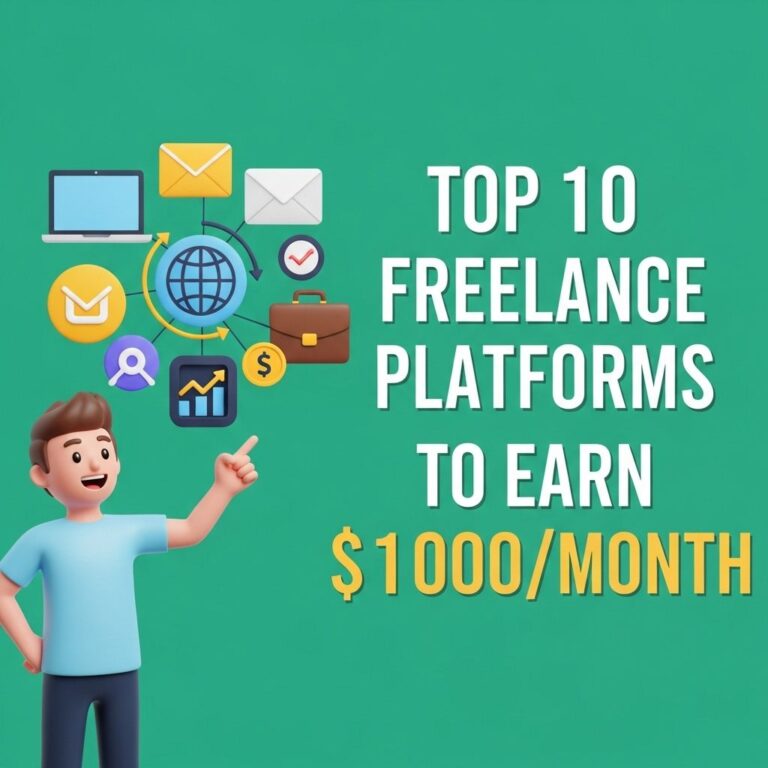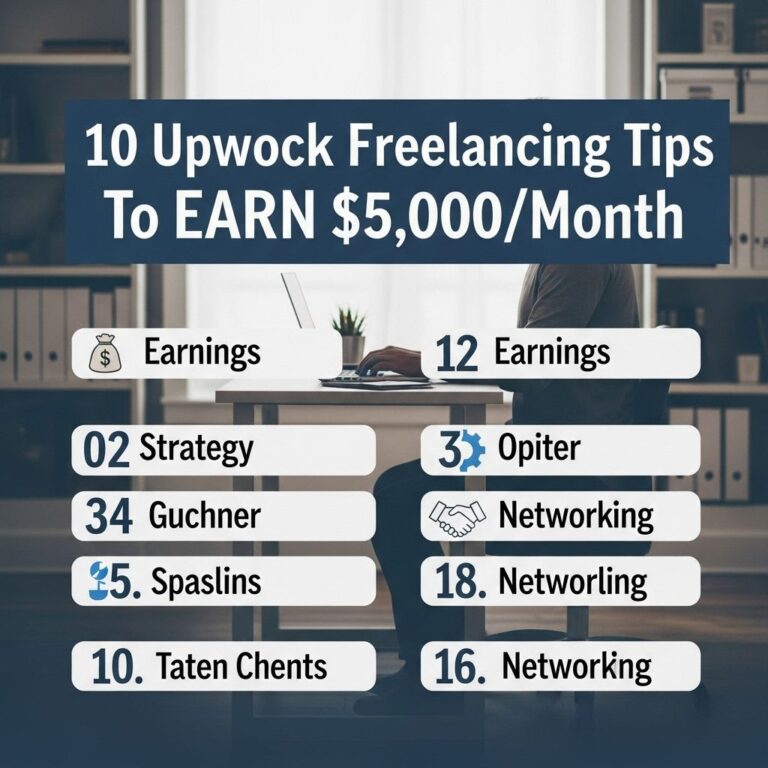As we step into 2025, the freelancing landscape continues to evolve at an unprecedented pace. With the rise of remote work, digital nomadism, and an increasing number of companies embracing flexible hiring practices, now is the perfect time to position yourself for success in the freelance market. This article explores the strategies, tools, and techniques that can help you effectively make money freelancing in the coming year.
Table of Contents
The Current State of Freelancing
Freelancing has drastically changed over the last few years, driven by technological advancements and shifts in workplace culture. In 2025, here are some key trends to consider:
- Remote Work Normalization: Many businesses have fully transitioned to remote work, allowing freelancers to access a global client base.
- Increased Demand for Specialized Skills: Companies are seeking freelancers with niche expertise, particularly in technology, design, and digital marketing.
- Gig Economy Growth: Platforms like Upwork and Fiverr continue to expand, creating more opportunities for freelancers.
Identifying Your Niche
To stand out in the competitive freelance market, it’s essential to identify your niche. Consider the following steps:
Assess Your Skills
Begin by evaluating your skills and interests. Ask yourself:
- What services can I offer that align with my expertise?
- What industries am I most passionate about?
Research Market Demand
Use tools like Google Trends, LinkedIn, and job boards to identify what services are in demand. Popular freelance niches in 2025 include:
| Niche | Description |
|---|---|
| Web Development | Building and maintaining websites and applications. |
| Graphic Design | Creating visual content for brands and businesses. |
| Content Writing | Producing articles, blogs, and marketing copy. |
| Digital Marketing | Helping businesses increase their online presence. |
| Data Analysis | Interpreting data to provide actionable insights. |
Building Your Online Presence
In 2025, having a strong online presence is crucial for attracting clients. Follow these tips:
Create a Professional Portfolio
Your portfolio is your calling card. Ensure it includes:
- High-Quality Samples: Showcase your best work relevant to your niche.
- Testimonials: Include client feedback to build credibility.
- About Me Section: Share your story and why clients should choose you.
Utilize Social Media
Engage with potential clients on platforms like LinkedIn, Instagram, and Twitter. Share valuable content, participate in discussions, and network with industry professionals.
Navigating Freelance Platforms
Freelance platforms can help you find clients, but competition is fierce. Here are some strategies to succeed:
Choose the Right Platforms
Identify platforms that align with your niche:
- Upwork: Great for a variety of freelance jobs.
- Fiverr: Ideal for creative services at varying price points.
- Freelancer: Offers a wide range of project types and bidding opportunities.
Craft Compelling Proposals
Your proposal is your chance to make an impression. Include:
- A personalized greeting.
- A brief overview of your understanding of the project.
- Specific examples of similar projects you’ve completed.
- A clear call to action.
Setting Your Rates
Determining what to charge as a freelancer can be tricky. Consider these factors:
Research Industry Standards
Check platforms like Glassdoor or Payscale to gauge average rates for your services.
Consider Your Experience and Skills
Adjust your rates based on your experience level and the complexity of the work. New freelancers may start lower, while seasoned professionals can demand higher rates.
Managing Your Finances
Track Your Income and Expenses
Use accounting software or tools like QuickBooks or FreshBooks to monitor your finances.
Set Aside Money for Taxes
Freelancers are responsible for their taxes. Set aside a percentage of your income each month to avoid surprises during tax season.
Continuing Education and Upskilling
The freelance market is continuously changing. Stay competitive by:
Taking Online Courses
Platforms like Coursera, Udemy, and LinkedIn Learning offer courses to enhance your skills.
Attending Industry Events
Join webinars and conferences to network and learn about new trends in your field.
Conclusion
Freelancing in 2025 presents numerous opportunities for those willing to adapt and innovate. By identifying your niche, building a strong online presence, and effectively managing your finances, you can establish a successful freelance career. The key lies in continuous learning and networking, enabling you to stay ahead in the ever-evolving freelance landscape.
FAQ
What are the best freelancing platforms to use in 2025?
In 2025, popular freelancing platforms include Upwork, Fiverr, and Freelancer, which provide a wide range of job opportunities for freelancers.
How can I build a strong portfolio as a freelancer?
To build a strong portfolio, showcase your best work, highlight diverse projects, and include client testimonials to attract potential clients.
What skills are in high demand for freelancers in 2025?
In 2025, skills such as digital marketing, web development, graphic design, and content writing are in high demand.
How can I effectively market my freelancing services?
To effectively market your freelancing services, use social media, create a professional website, network with industry professionals, and leverage SEO strategies.
What are the common challenges faced by freelancers and how can I overcome them?
Common challenges include inconsistent income and client management; overcoming them requires setting clear goals, maintaining a budget, and improving communication skills.
Is it necessary to register my freelancing business in 2025?
While not always required, registering your freelancing business can provide legal protection, enhance credibility, and simplify tax processes.









